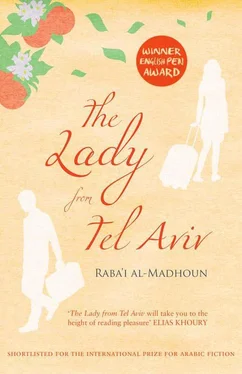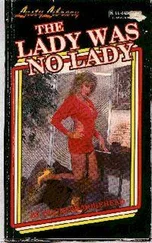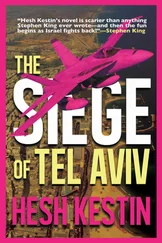Will the bombardment let up before tomorrow morning? Will the crossing be closed because of this? These missiles are a disaster — there is no possible upside to the stupid attack now taking place.
The planes have just renewed their attacks, but we’re not yet able to ascertain their exact target.
Amal returns with another radio and hands it to Emad who starts spinning through the stations.
It seems we’ve lost our connection to Brother Ayman …
Abdelfettah turns his off.
Oh, oh, oh! How I miss your beautiful eyes!
Oh, oh, oh! How scared I am for you!
Oh, oh, oh !
‘This radio has no shame!’ My mother is incensed. ‘Is this any time to be playing songs about my eyes and your eyes? I hope the monkey who gave birth to them rips out their eyes!’
‘I’ve got a way to play al-Manar on my mobile,’ Abdelfettah remarks. ‘I want to listen to that.’
In Beit Hanoun, at the hospital, Namiq.
Please go ahead, Brother Ayman. Please continue.
Yes, Namiq. There are attacks on Beit Lahia in the north. Six …
Emad tries tuning into other stations until he loses patience, then finally the song comes on again.
The 12 o’clock train, Oh, oh, oh, you…
My mother frowns.
Our thoughts and greetings go out to the family of the martyr.
‘This is the workers’ station,’ Abdelfettah explains to us.
‘ Shalom, shal … ’
‘Do you know Hebrew, Abdelfettah?’ I ask.
‘Of course.’
‘Be-yom khameshi. Forces targeted Islamic Jihad offices in Jabalia.’
Suddenly, the electricity turns off and we are cast into a sea of darkness. Little Nasreen calls out, ‘Hey! Will someone light a candle? I want to see Auntie!’
My mother calls out: ‘Sit down and be quiet — you’ve already talked enough for two people tonight. The Jews cut the power because they want to keep me from seeing your uncle Walid. They think we have too much time left, and they want us to say our goodbyes now. May God shut off the water in their throats. Please, God — just this once, for me?’
Abdelfettah adds, ‘What did I tell you, Abu Fadi? Israel is conspiring against you and your mother. It’s personal.’ Somewhere in the darkness, we hear a flat colourless laugh. Amal slips through the gloom into the kitchen and returns with a pair of long candles. She places one on the ground in front of me, and another on the other side of the room.
Brother Namiq, Deir El-Balah is under fierce attack by Apache helicopters …
‘Where’s Abu Hatem right now?’ I wonder aloud. I pick up my mobile and call him. The number you are trying to reach is not available right …
‘No one is answering, Mama!’
‘Call your cousin Suad,’ my mother suggests. ‘She went with them. They were going to drop her off on the way.’
‘Hello, Umm Ayman? We’re worried about Abu Hatem. Do you know where they are?’
‘I’m worried too, cousin. They’re at Mahfouza Checkpoint. He says the checkpoint is closed — and there are so many cars stuck there, the road is blocked in both directions. They’re under attack right now.’
The electricity comes back on as suddenly as it went off. Under the glaring light, each of us rubs our eyes, hoping to get the shadows out.
By 1 in the morning, my mother and I are alone. Emad and Abdelfettah said goodbye and hugged me. Amal and I exchanged a few words of parting from across the room, then she picked up Nasr and followed her husband out of the door. I hugged their daughter Nasreen and gave her a kiss. As she ran to catch up with her parents, she asked: ‘When are you coming back, Uncle?’
‘Next year, I hope,’ my mother says for me. ‘ Inshallah , he’s going to bring his whole family next time. Isn’t that so, son?’
There was nothing to say but ‘ inshallah ’.
Shafiq, the last bachelor, had already left before them. He said he had to wake up early for work, then got up and said goodbye.
Here were are, by ourselves, my mother and I. I decide to ask her about something that has been bothering me for years. ‘Mama, there’s something I’ve wanted to ask for a long time. And I want you to tell me the truth.’
‘Anything, son. I have nothing to hide from you.’
‘Remember the acacia that used to stand over father’s grave.’
‘Of course I do. Nothing was kinder to him in death than that tree.’
‘Mama, there were embroidered silk handkerchiefs hanging in the branches. Women’s handkerchiefs. Who was it who put them there, Mama?’
‘Ah. The handkerchiefs. You noticed them? I’ll tell you the whole story. One day your father came home from work. As soon as I saw him, he took out an embroidered handkerchief from his pocket. He handed it to me and said: “That Jaffan woman gave this to me, Umm Walid. I didn’t want to hide it from you. She’s married, you know. When she gave it to me, I didn’t want to give it back to her. I didn’t want to embarrass her, but I told her not to do it again. The woman went away and never came back. The handkerchief sat in my pocket for two weeks before I admitted that it should go to you.”’
‘Were you jealous, Mama?’
‘Of course, I was jealous. But I always trusted your father. When he passed away, God have mercy on him, I used to hang handkerchiefs on the branches for him. But I always held on to the one he gave me.’
‘Do you know who the woman was?’
‘God keep her safe and hidden. Everything turned out for the best.’
I decide not to tell her what my grandfather told me so many years ago about Sawsan al-Ghandour. I do not want to rekindle the embers of doubt she has managed to bury so deep. The trust she placed in my father is an impenetrable mountain.
Just before 10 am, Abdelfettah and I get into his little car and head toward the Beit Hanoun crossing. We pass through the empty streets of Jabalia and Beit Lahia. It is as if last night’s death shadow still hovers over the place. Like everyone else in the two towns, we both expect an early morning ground assault to come along and take care of the unfinished business of hours ago. We expect to see tanks creeping into town at any moment.
When we reach Beit Hanoun, there are no tanks or troops to be found. The crossing is completely empty except for a pair of Palestinian security officers smoking and chatting with one another behind their desks.
Abdelfettah and I embrace one last time, then I walk over to the officers. I hand one of them my passport and he writes some notes. Then he picks up a walkie-talkie, and says something in Hebrew to the other side. From what I can gather, he is telling them that there is a British passport holder who wants to come through. A few minutes go by, then the man indicates that I can pass. Unescorted, I walk down the long corridor toward Israel.
I get into London around 10 pm. I am exhausted from all the travel and from all the security procedures I underwent at Ben Gurion, which were all the worse for my having come from Gaza. The whole time I was there, I was treated like someone who was smuggling suicide bombers in his suitcase. I was welcomed into the departures line by a woman in her twenties. She interrogated me for at least ten minutes, her questions focused on what I had been doing in Gaza and who I had met there. The thing that most infuriated me was that she kept asking why my passport indicated that I had been born in Ashdod. At first I ignored the studied stupidity of her questions, but eventually decided to give her something she could worry about for the rest of her life. I told her I was born before the state of Israel was even founded. I told her that, judging by our ages, I was more grown up than her country. The woman got angry and fled when a co-worker called her over. I was handed over to another security officer. This woman began to ask me the same set of questions, as if they both had studied the same lessons on the harassment of travellers at the same school. After a while, she stopped asking questions, and I stopped giving answers. I loaded my suitcase onto the X-ray machine, but a third girl stepped in to block me — confirming that her scorn for Palestinians was as discriminating as the rest of her colleagues’.
Читать дальше












